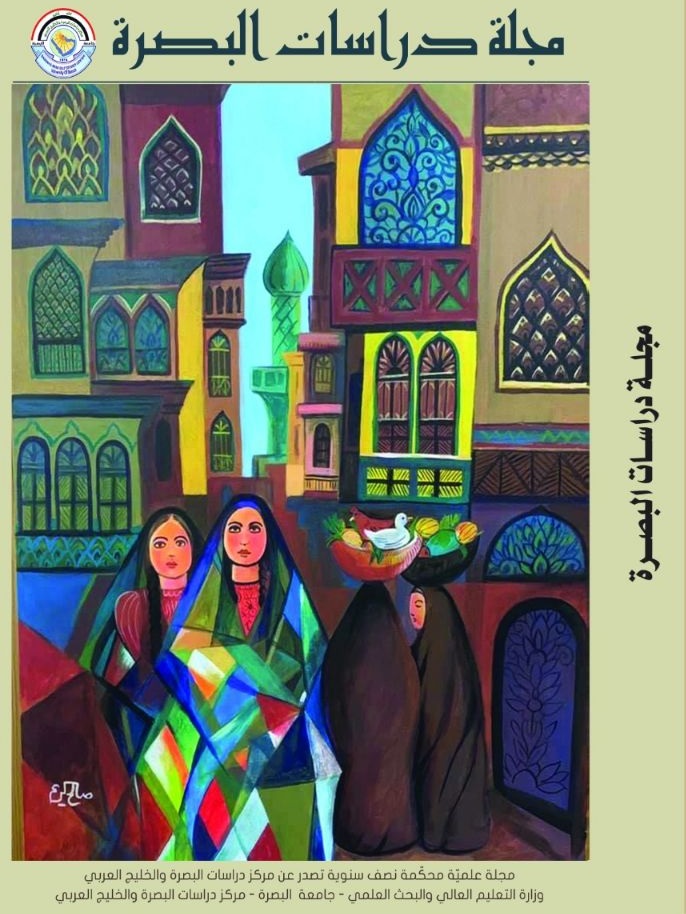Abstract
Islam places great importance on the continuity of the marital bond between spouses unless a legitimate impediment arises to prevent it. One of the conditions for the validity of the marriage contract is that the woman must not be in a state of ihram, whether temporary or permanent, which may render the marriage contract subject to annulment in the event of a change in the religion of either spouse. Islamic law addresses such cases by either allowing the marriage to continue or by dissolving it. Personal status laws in Arab countries regulate the application of Sharia in cases involving a change in the religion of one of the spouses, as this matter is regarded as a right of God.
This study reviews the impact of religious conversion on the marriage contract from the perspectives of Muslim jurists, including the Imami, Hanafi, Shafi’i, Maliki, and Hanbali schools. It also compares the positions of personal status laws in Iraq, Yemen, Kuwait, and Jordan regarding the annulment of the marriage contract due to a change in religion. Special attention is given to Iraq’s Personal Status Law No. 188 of 1959, Yemen’s Law No. 20 of 1998, Kuwait’s Law No. 51 of 1984, and Jordan’s Law No. 36 of 2010, as they contain specific provisions related to this issue.
This study reviews the impact of religious conversion on the marriage contract from the perspectives of Muslim jurists, including the Imami, Hanafi, Shafi’i, Maliki, and Hanbali schools. It also compares the positions of personal status laws in Iraq, Yemen, Kuwait, and Jordan regarding the annulment of the marriage contract due to a change in religion. Special attention is given to Iraq’s Personal Status Law No. 188 of 1959, Yemen’s Law No. 20 of 1998, Kuwait’s Law No. 51 of 1984, and Jordan’s Law No. 36 of 2010, as they contain specific provisions related to this issue.
Keywords
annulment
Contract
Legal Provisions.
Marriage
Religion
Abstract
حرصَ الدينُ الإسلامي على استمرارِ الرابطة الزوجية بين الزوجين ما لم يظهر مانع شرعي يمنع ذلك، ومن شروطِ صحةِ عقدِ الزواجِ أن تكونَ المرأةُ غيرَ محرمة، سواء كانت الحرمة مؤقتة أو مؤبدة، مما يجعلُ عقدُ الزواجِ معرضًا للفسخ في حال تغيير ديانة أحد الزوجين. يعالجُ الدينَ الإسلامي تلك الحالات سواء بالاستمرار في الزواج أو بفسخه، وتنظمُ قوانين الأحوال الشخصية في الدول العربية تطبيق الشريعة فيما يتعلق بتغيير ديانة أحد الزوجين؛ لأنه يعدُّ حقًا لله تعالى.
سيتمَّ استعراضُ تأثيرِ تغيير الديانة على عقد الزواج من وجهات نظر الفقهاء المسلمين، مثل الإمامية، الحنفية، الشافعية، المالكية، والحنابلة، وسيتمُّ مقارنة مواقف قوانين الأحوال الشخصية في العراق، اليمن، الكويت، والأردن فيما يتعلق بفسخ عقد الزواج بسبب تغيير ديانة أحد الزوجين. سيتمُّ التركيزُ على قوانين الأحوال الشخصية العراقي رقم 188 لسنة 1959المعدل، قانون الأحوال الشخصية اليمني رقم 20 لسنة 1998، قانون الأحوال الشخصية الكويتي رقم 51 لسنة 1984، قانون الأحوال الشخصية الأردني رقم 36 لسنة 2010؛ لأنها تتضمن أحكامًا خاصة بفسخ عقد الزواج بسبب تغيير الديانة.
سيتمَّ استعراضُ تأثيرِ تغيير الديانة على عقد الزواج من وجهات نظر الفقهاء المسلمين، مثل الإمامية، الحنفية، الشافعية، المالكية، والحنابلة، وسيتمُّ مقارنة مواقف قوانين الأحوال الشخصية في العراق، اليمن، الكويت، والأردن فيما يتعلق بفسخ عقد الزواج بسبب تغيير ديانة أحد الزوجين. سيتمُّ التركيزُ على قوانين الأحوال الشخصية العراقي رقم 188 لسنة 1959المعدل، قانون الأحوال الشخصية اليمني رقم 20 لسنة 1998، قانون الأحوال الشخصية الكويتي رقم 51 لسنة 1984، قانون الأحوال الشخصية الأردني رقم 36 لسنة 2010؛ لأنها تتضمن أحكامًا خاصة بفسخ عقد الزواج بسبب تغيير الديانة.
Keywords
العقد، الزواج، الفسخ، الديانة، شروط الصحة.
